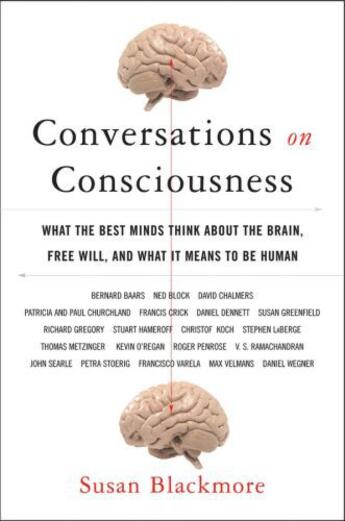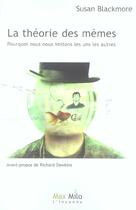-
Nombre de pages : (-)
-
Collection :
(-)
-
Genre :
(-)
-
Thème :
Non attribué
-
Prix littéraire(s) :
(-)
Résumé:
"Human brains are just the most complicated thing that's yet evolved, and we're trying to understand them using our brains," notes philosopher Daniel Dennett. "We're trying to reverse engineer ourselves, to understand what kind of a machine we are." In Conversations on Consciousness, Susan... Voir plus
"Human brains are just the most complicated thing that's yet evolved, and we're trying to understand them using our brains," notes philosopher Daniel Dennett. "We're trying to reverse engineer ourselves, to understand what kind of a machine we are." In Conversations on Consciousness, Susan Blackmore brings together some of the great minds of our time, a who's who of eminent thinkers, all of whom have devoted much of their lives to understanding "what kind of a machine we are." Some of the interviewees are major philosophers (such as John Searle, Ned Block, and David Chalmers) and some are equally renowned scientists (Francis Crick, Roger Penrose, V.S. Ramachandran). All of them talk candidly with Blackmore about some of the key philosophical issues confronting us, in a series of conversations that are revealing, insightful, and stimulating. They ruminate on the nature of consciousness--is it something apart from the brain? Is it even possible to understand the brain, to understand human consciousness? Some of these thinkers say no, it isn't possible, but most believe that we will pierce the mystery surrounding consciousness, and that neuroscience will provide the key. Blackmore goes beyond the issue of consciousness to ask other intriguing questions: Is there free will (a question which yields many conflicted replies, with most saying yes and no); if no, how does this effect the way you live your life; and more broadly, how has your work changed the way you live.
Ranging from the curious (do bees have consciousness?) to the profound (is our sense of having a self just an illusion), these provocative conversations illuminate current thinking on the mind and on human nature itself.
Donner votre avis









